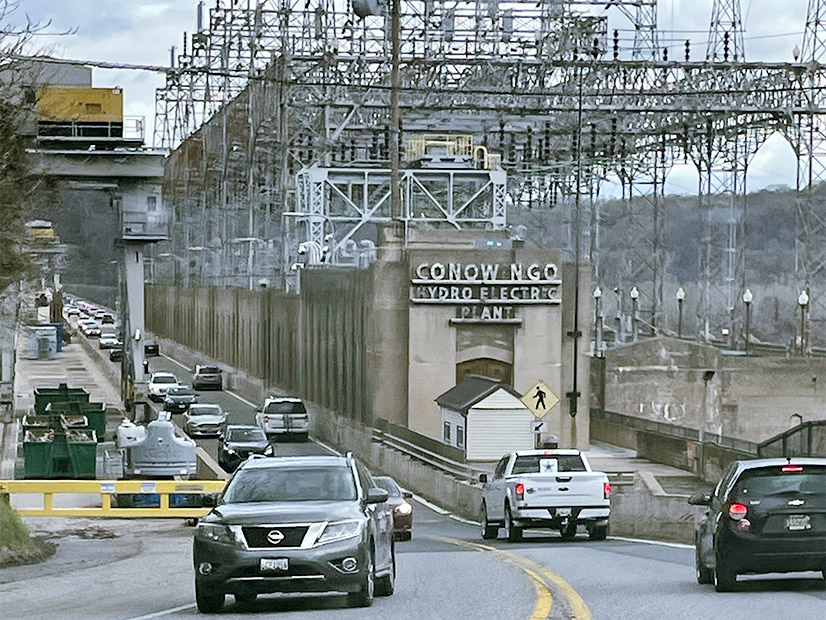The D.C. Circuit Court of Appeals on Tuesday vacated FERC’s licensing of the Conowingo Dam on the Susquehanna River in Maryland, ruling in favor of environmental groups who argued that the commission exceeded its authority under the Clean Water Act (CWA) (21-1139).
The court remanded the licensing decision back to FERC, ruling that the commission did not have the power to issue the dam a license based on the conditions of a settlement between the Maryland Department of the Environment (MDE) and Constellation Energy (NASDAQ:CEG), rather than on the department’s original CWA certification of the dam in 2018.
Describing the environmental requirements of the original certification as “unprecedented” and “extraordinary,” Constellation had filed for reconsideration from the MDE, challenged the original certification in state and federal court, and petitioned FERC to find that the state had waived its opportunity to issue a certification. The settlement was reached through mediation between the company and the department, after which the state agreed to waive the right to issue a water quality certification and allow FERC to issue a license for the dam incorporating the terms of the settlement.
The court found that the MDE backtracking on its original certification and waiving its authority to issue a certification does not fit into one of the two instances in which the CWA allows the commission to issue a license. It only allows FERC to grant a license when the state has issued a certification or “fail[ed] or refuse[ed] to act on a request.”
“This leaves no room for FERC’s third alternative, in which it issued a license based on a private settlement arrangement entered into by Maryland after the state had issued a certification with conditions but then changed its mind,” the court said.
The settlement was objected to by environmental groups in the state, including the Waterkeepers Chesapeake, Lower Susquehanna Riverkeeper Association, ShoreRivers and Chesapeake Bay Foundation, which filed a petition for rehearing before the commission and ultimately with the D.C. Circuit for review.
In rejecting the arguments from the environmental groups on rehearing, FERC argued that the CWA does not prevent a state from affirmatively waiving its authority to certify a project. The court struck down that claim when repeated by commission attorneys during oral arguments.
“Pressed at oral argument, FERC counsel went so far as to argue that ‘if we can’t conclude that Congress thought of an unnamed [potential course of action],’ by resort to legislative or congressional reports, then we must treat the course of action as available to the agency,” the court said. “That, however, is not how we interpret statutes. Our court has ‘repeatedly rejected the notion that the absence of an express proscription allows an agency to ignore a proscription implied by the limiting language of a statute.’”
Both Constellation and the MDE expressed disappointment with the ruling, with the department stating that it will “work with the Office of the Attorney General on the implications and next steps.”
“While we are still reviewing the order, we are surprised and disappointed in the D.C. [Circuit] Court’s decision to vacate Conowingo’s license renewal,” Constellation spokesperson Paul Adams said in an email. “No one who cares about clean air and the health of the Chesapeake Bay should be cheering this decision, which potentially jeopardizes the state’s largest source of renewable energy and could disrupt up to $700 million that Constellation pledged for environmental programs, projects and other payments that directly benefit water quality, aquatic life, and citizens living on and near the bay.”
The court said that vacating the license also allows further administrative and judicial review to be completed, which could result in invalidation of the original MDE certification or, in the case of its validation, for FERC to be required to license the dam according to the conditions stipulated in the certification.
The 2018 certification required Constellation to develop a plan including the reduction of nitrogen and phosphorus discharge, improvement of aquatic passage, control of debris, and improved aquatic resources and habitat protection, according to the court ruling.
During oral arguments, FERC said vacatur of the license may disrupt environmental protections included in its conditions, but the court noted that the commission’s counsel recognized that those concerns could be mitigated through interim annual licenses.
“Equally important, [the environmental groups], which brought this action for the very purpose of strengthening the dam’s environmental protections, agree,” the court said.




